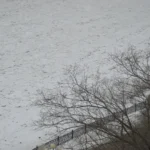
Bureaucratic workload on teachers hinders quality education. This was stated by a deputy speaker of the State Duma, who provided research results from his analytical team.
According to him, excessive bureaucracy in the educational system undermines the quality of teaching, turning teachers into clerks.
– Essentially, reports and certificates, organizational matters have replaced students. Instead of live communication with children, creative and educational work, teachers are turned into clerks who spend days filling out endless tables, forms, and plans, – he noted, calling the situation “paper terror.”
He added that this leads to professional burnout and called for developing measures to reduce such workload.
According to research conducted among more than three thousand educators from 75 regions of Russia, half of teachers believe that the volume of reporting has reached a critical point and interferes with their main work. On average, a teacher spends from eight to 10 hours per week filling out documents, organizing events, and communicating with parents. This time could be used for teaching.
Additionally, 50% of respondents admitted that bureaucratic workload has become their main professional problem, while 73% noted that the volume of paperwork has increased over the past three years. 45% of teachers also stated that they are forced to deal with reporting during their personal time, including evenings and weekends.
He noted that a proposal to modernize the reporting system in schools will be sent to the Russian Ministry of Education with the aim of reducing the bureaucratic burden on teachers.
It should be recalled that difficulties were caused for parents of Khabarovsk school students with the electronic diary. Most often, grades for academic performance do not appear immediately, but after days, and sometimes weeks. During this time, the child forgets what they received a particular grade for, and adults lose the opportunity to promptly respond to emerging problems.

